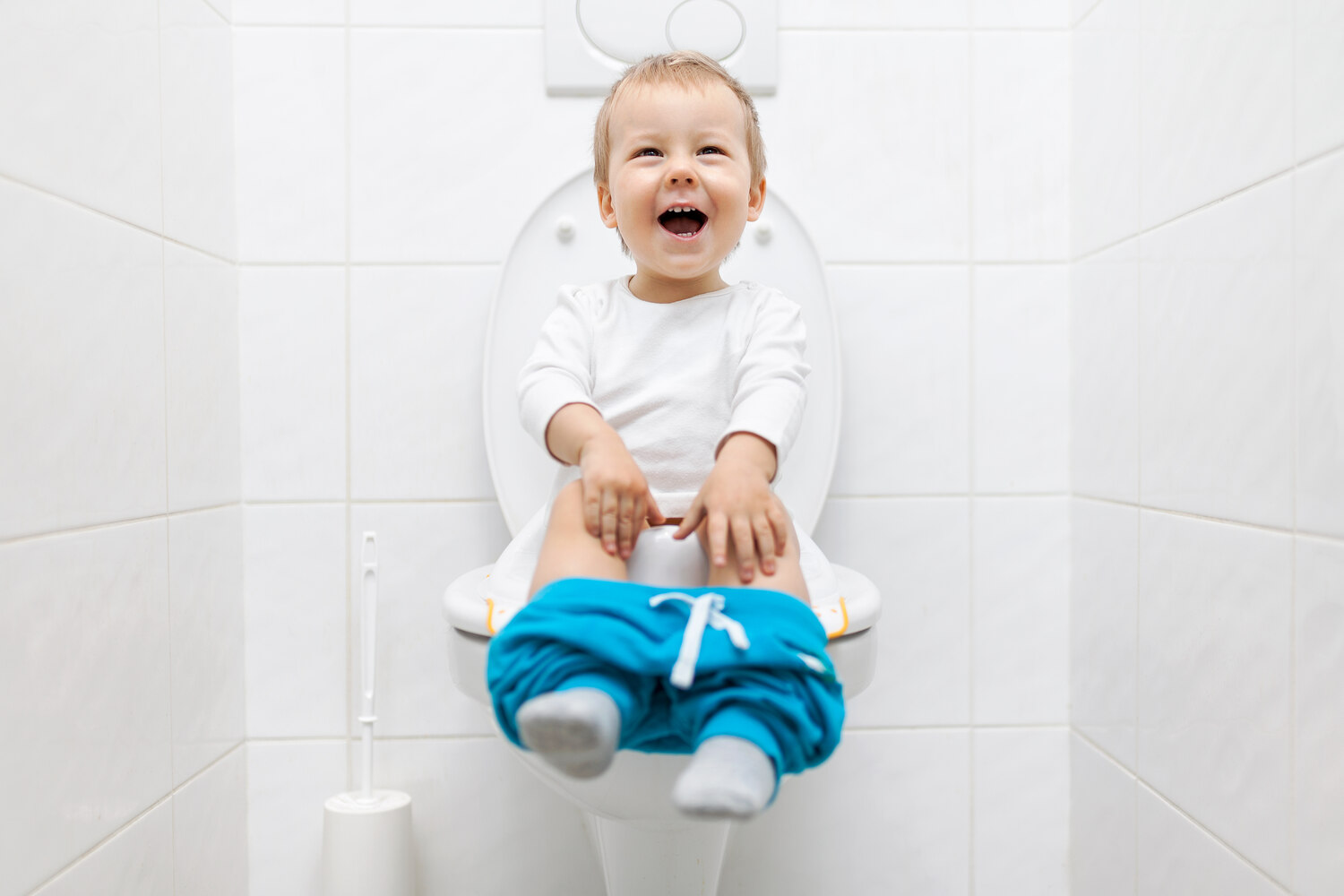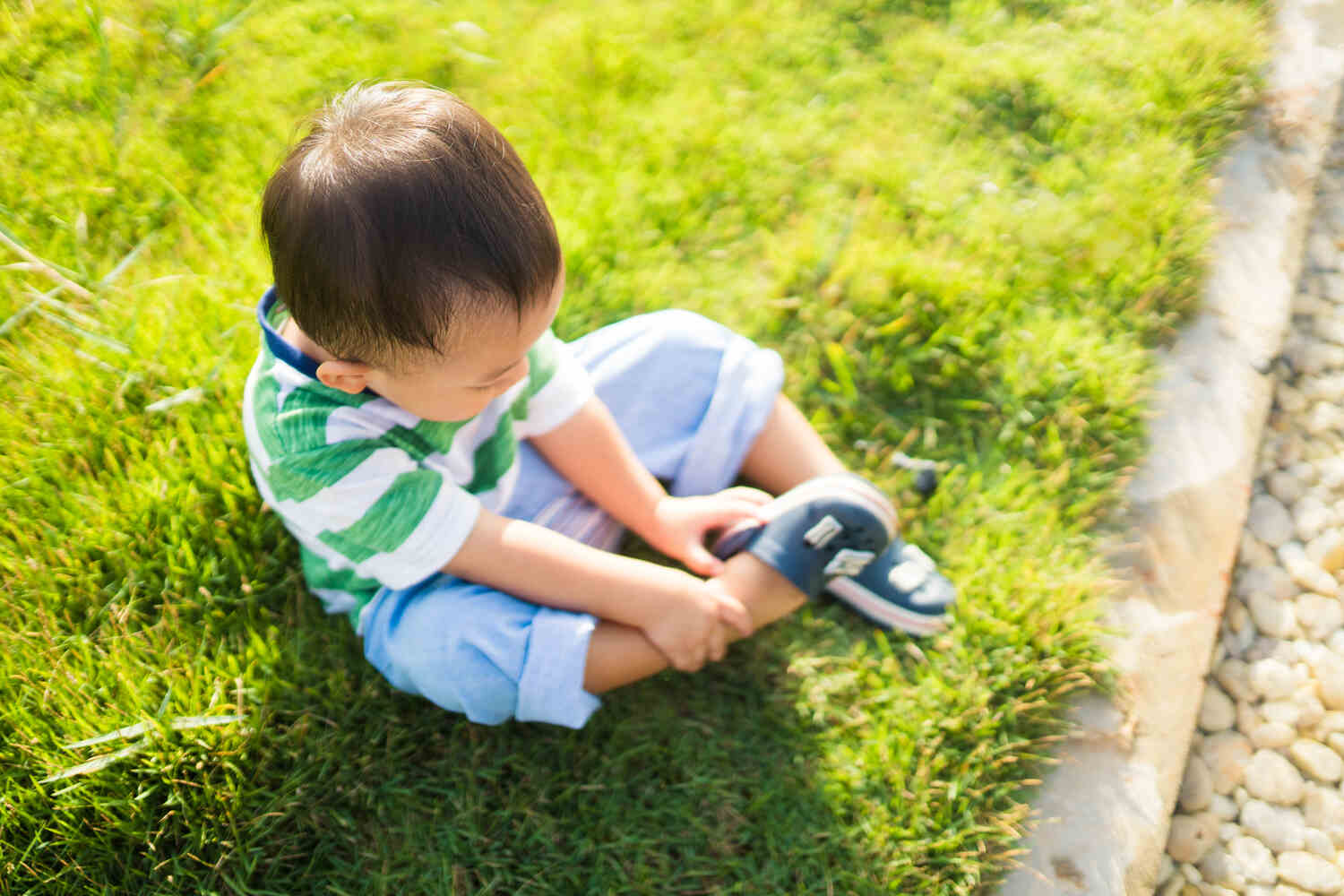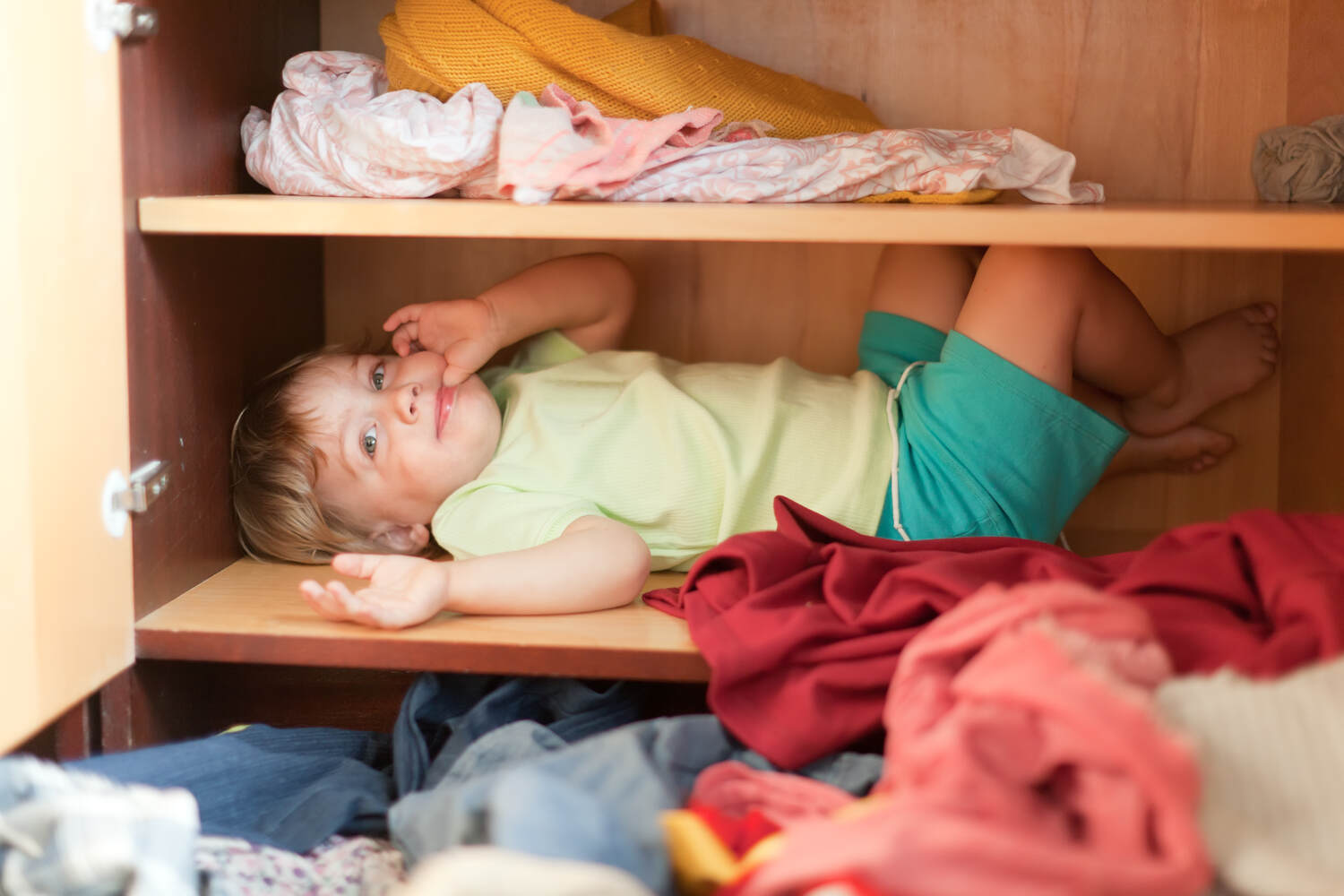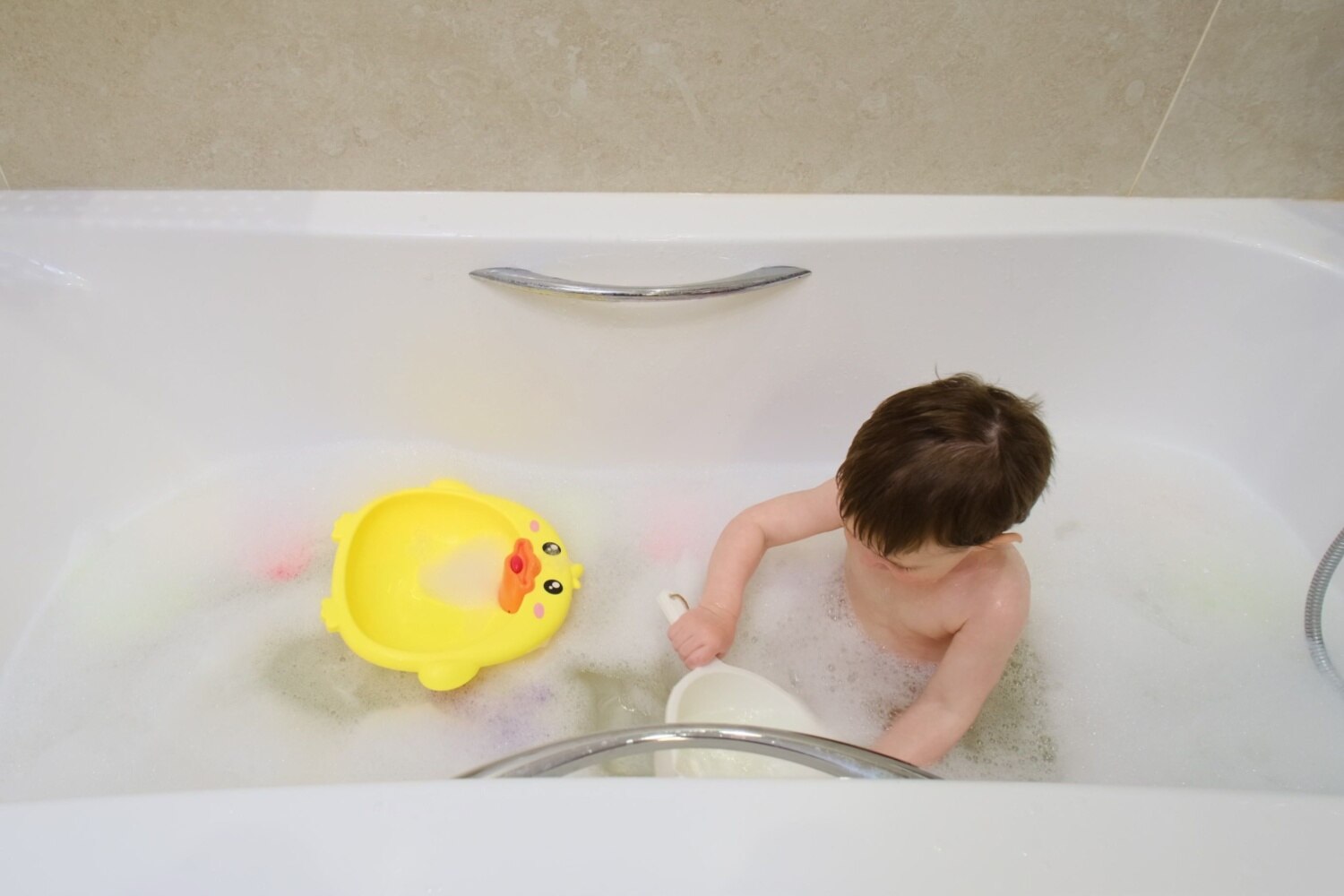
Having a 2-year-old toddler can be very entertaining and draining at the same time. They are full of energy, curious to learn anything and everything, and crossing their toddler milestones at such speed! You may need an energy drink or a few more cups of coffee just to keep up with your toddler’s energy.
When you know what toddler milestones your little one can meet this coming month, you can be a little proactive and assist or support them in attaining that milestone. Sometimes, toddlers need just a little nudge or the right environment to help them meet those milestones in time. Read on to learn what toddler milestones a 25-month-old can meet in the next few weeks.
In This Article
- Developmental Milestones For 25-Month-Old Toddler
- Growth Chart For a 25-Month-Old Toddler
- Tips to Boost Your 25-Month-Old’s Development
- Health And Care of Your Toddler
- Some Useful Tips For Your Toddler
- FAQ’s
Developmental Milestones For 25-Month-Old Toddler

Some developmental toddler milestones you can expect from your 25-month-old are-
Growing Fast
- Toddlers may seem to grow quite fast after their second birthday
- Both cognitive and physical growth can gain momentum now
- With a little help or guidance, toddlers can now pick skills they were struggling with a few months ago
Prefers to do it on Their Own
- Your toddler will love to do it all by themselves
- They will try and many can wash their hands by themselves, with very little help
- Some will insist on handling the soap on their own during bath time
- Toddlers love to undress on their own
- They will try to wear their shoes without help and get it wrong but won’t like your help
- With a little help, they can even partly brush their teeth on their own
Meal Time Issues
- Your toddler can get picky with food
- They may not like something they used to love a few months ago
- They are open to trying new foods as long as they can do it on their own
- Many will be more open to trying new foods if it’s on your or another adult’s plate
Little Helper
- Your toddler is observing you constantly and knows how you do certain chores
- They will gladly help you put the clean vessels away, straighten the bed, and even dust the house
- They may not be so receptive to the idea of cleaning their room or putting away their toys
- If there is a baby in the family, some toddlers will insist on caring for the baby, like giving the bottle, covering the baby with a blanket, or rocking the cradle
Separation Anxiety Reduces
- If your toddler is going to a play school or a playgroup, they won’t cry as much as before when you leave them
- Some will show a lot of interest in going to school or playing with other toddlers
- Your toddler might have a hard time agreeing to come back home after a play date or daycare
Fight Routine
- As your toddler becomes more independent, they may start fighting routines they were following all these months
- They may refuse mealtimes, fight bedtimes, and take naps at odd hours
Growth Chart For a 25-Month-Old Toddler
An average 25-month-old’s height and weight will be as follows-
Girls
- Weight – 9.3 – 14.9 Kg
- Height- 80.4 – 92.8 cm
Boys
- Weight – 10.0 – 15.3 Kg
- Height- 82.1 – 93.8 cm
(This chart is just an indication and these parameters may vary from one toddler to another)
Tips to Boost Your 25-Month-Old’s Development
Here are some tips for parents to aid their 25-month-old’s development in attaining their toddler milestones-
1. Toilet Seat

It is time to move your toddler from a potty chair to a toddler toilet seat that you can use on a regular toilet. Get them a stool to climb on, to sit on the toilet. Help them get up and sit until they lose the fear of heights or falling in.
2. Ditch Bottles

Your toddler should be off their feeding bottles and sippers by now. Switch to a straw bottle or straw cup. At home, opt for open cups, for their water, milk, or juices. Teach your toddler to use a straw bottle without titling it upwards like they would with a sipper.
3. Don’t Rush

Toddlers don’t understand time. They will be slow and refuse help. Don’t rush them or help them immediately. Give them some time to try it on their own. This will build their self-confidence and also give them a chance to learn from their mistakes.
4. Reduce Restrictions

Your toddler is not a helpless little baby anymore. They are bigger, stronger, and understand a lot more. This is the age to explore their limits and abilities. Restrictions and rules can help keep your toddler safe. However, reducing these restrictions gives them more room to explore and grow.
5. Acknowledge Fear

Toddlers can develop a fear of the unknown – the darkness, how certain toys move or make noise, insects, doors banging too loud, etc. The fear can be very silly, but ensure you acknowledge it. Acknowledgment will make your toddler feel heard and validated. This will encourage them to approach you anytime they face an issue, even as they grow up (1).
6. Discourage Bad Habits

Your toddler might bite their nails, try to tear them off, pick their nose quite often, and even put their dirty hands into their mouth without a second thought. Keep discouraging such actions before they become habits. Their brains are still immature and require multiple reminders before they can consciously avoid doing those actions.
Health And Care of Your Toddler

Here are some ways to effectively take care of your growing toddler’s health-
- As your toddler eats more foods, and tries new varieties, they can feel constipated. Their body can find it difficult to digest new foods. Increase fiber intake to ease constipation
- Toddlers tend to catch a cold quite frequently. Make a note of the medicine and dosage you can give your child before you get your appointment with the doctor. Ask your doctor for dosage recommendations in such cases. This way, you don’t have to let your toddler suffer till you visit the doctor
- Toddlers can get curious and start drinking bath water with the bath mug or toys. Keep a close watch and also educate them not to do so
- Give them protein-rich foods to aid better nourishment and growth. Sneak it into their milkshakes or snacks to avoid meltdowns or defiance
- If the weather is too warm or humid, check their scalp and backs for heat rashes or boils. Dress them in airy clothing and wash their heads regularly to avoid sweat and bacteria buildup
Some Useful Tips For Your Toddler

Here are some tips to help both parents and toddlers-
- You can switch from a back-facing to a forward-facing car seat. Ensure they meet the height and weight requirements of that particular brand before you make the switch (2)
- You may not require many new tops for your toddler but you may have to pick up new pants, a size bigger than before. If your toddler is not in diapers all the time, you can buy regular fit/cut pants too
- Opt for tops with buttons, zippers in the back, or an elasticated neckline. Toddlers will try to dress themselves, and they won’t get stuck in such tops very frequently
- If your toddler uses a pacifier when they step out or want to sleep, it is time to slowly start the weaning process
- Buy them straw bottles in interesting shapes or colors to tempt them into trying the new type of bottle
- Encourage them to drink a lot of water and other fluids, to ease constipation and aid better digestion
Your little bundle of joy is 2 full years old and is stepping into its third year. Their growth can be quite surprising. Understanding the toddler milestones, they can cross this month, and aiding them can help them achieve the milestones and more as they grow up.
FAQ’s
1. Is There a Growth Spurt at 25 Months?
Your toddler may grow faster now than in the last couple of months, but this is not a growth spurt. Toddlers do not experience a major growth spurt until they reach puberty.
2. What Are The Gross Motor Skills of a 25-Month-Old?
A 25-month-old toddler can throw, run, jump, and climb stools and small ladders in the playgrounds. They can climb small slides or try to get on equipment that requires balance and coordination. You need to keep a close watch to avoid accidents.
3. What Are Poor Motor Skills Examples?
Some examples of poor motor skills are – unable to hold items with both hands and walk, bumping into walls or objects around, dropping items, or being unable to stack or arrange items or toys
4. How Should a 25-Month-Old Talk?
A 25-month-old meeting their toddler milestones in time should be able to say many words (50-100), respond to direct questions, use more than 2 or 3 words in a sentence, change tone, and show facial expressions.
Reference Links
- Acknowledge Fears – [https://www.researchgate.net/publication/250150775].
- Switching car seats – [https://www.safekids.org/tip/when-change-your-childs-car-seat]
